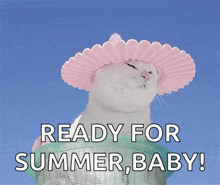Daddy issues is a commonly used term in society, especially on social media. There are music, books, and films that are dedicated to the term in one way or another. Scrolling through Tiktok results in at least one video labeling something as the result of "daddy issues." The vast use of this term, although not medically certified, is representative of stereotypes of women. It's time to have a conversation about why our world revolves around daddy issues.
Let us slide into your dms 🥰
Get notified of top trending articles like this one every week! (we won't spam you)What are "Daddy Issues"?
There isn't a concrete definition of the term, since it's a cultural phenomenon. The gist of it is a term used to describe women who have a complex relationship with their father, which further manifests into complex and unhealthy relationships with other men in their lives. Complex father relationships can stem from abuse, neglect, or anything that strains the relationship.
Complex relationships with men as a result can be from obsession to avoidance, and everything beyond and in between. A toxic father can cause warped thought patterns in a young girl. Later in life, these daughters may find themselves in unhealthy romantic relationships that mimic the father they had, or lack thereof.
Note: Daddy issues can be applied to any gender, but it is mainly applied to women and feminine people.
Take the Quiz: Which Indian city is the perfect holiday spot for you!?
Let's match you with an Indian city that you would love!
In Culture
Many have heard the song "Daddy Issues" by The Neighborhood. The song is based on a woman who is emotionally unstable due to her horrible relationship with her father. The presence of daddy issues in the 21st century is undeniable and has become a part of our language, especially among teens and young adults.
The effects the term has had on culture are immense. From Lolita to Lana Del Rey, daddy issues have been used to entertain for decades. This entertainment is often a form of self-expression, with music stemming from paternal relationships.
It seems as though everything roots back to them. It has even become an "aesthetic", with quotes and film stills littering the Pinterest search for the term.
As well as being imminent in culture, there are cultural perceptions around women badged with the term. Needy, obsessive, controlling, insecure, and distant are a few to name. It has almost become a trope within us.
Thus, daddy issues are all around us. From the art we consume to our everyday language. It is embedded in our society.
Why are we obsessed with daddy issues?
The paternal figure exhibiting absent or abusive traits have grasped popular culture, not just today, but for hundreds of years. Sigmund Freud, an iconic figure, coined the term "Electra Complex". Often accredited as the term for daddy issues before social media, the Electra complex describes daughters with a subconscious attraction to their father.
Honestly, this idea is extremely weird and outdated, but it is important in the shaping of daddy issues. Popular culture has adjusted this belief to a wounded daughter yearning for a father figure in romantic partners, among other behaviors.
Our society is widely obsessed with labels, placing everyone into boxes and categorizing them depending on their sexuality, behavior, and more. This is another instance of it. It creates a somewhat niche community of women who have unhealthy tendencies due to their childhood and father. It creates ways to cope, it can help people feel visible about their own struggles.
Our society is also obsessed with fatherhood. The All-Father in Odin, the Father of All Gods in Zeus, and even the founders of America are called the Founding Fathers. Films about fatherless families, books about older men fathering young girls, and music about women who were broken by their fathers.
The paternal longing is all around us. Fathers have a stigma behind their role as well. Fathers are portrayed as the protectors, the ones to guide and lead, and of course, creators.
In newer cultures, they are often painted as firm but softies for their daughters. Children naturally crave the attention of their fathers.
In addition to labels and fatherhood, we also have an obsession with women. Precisely, the labeling of women. Taking a trip to the early 1900s, mental health care for women lacked compared to today. Female hysteria was a common disorder diagnosed in women exhibiting behavior outside of the acceptable norm for women at the time.
For wounded daughters, the mold is still tight. Women with absent or abusive fathers are ridiculed for their fathers' state. Daddy issues are often an insult to women.
The term is used to humiliate the daughter, rather than help her. The daughter is blamed for the absence or abusiveness of the father. The father is excused, while the daughter is forced to pick up the pieces of her childhood alone.
This obviously affects her in her future, leading to unhealthy behaviors and toxic relationships. But, instead of seeking help, she is encouraged to keep it to herself. She does so in fear of being taunted and joining the herd of women badged with "daddy issues" like a scarlet 'A'. This all roots down to the misogyny embedded in our society, the beliefs of centuries past being prevalent in 2022.
The behavior assigned to daddy issues is a result of trauma. They are the outcome of parental wrongs that are forced on to women daily. We are obsessed with daddy issues because of our obsession with labeling wounded people.
Conclusion
The impact of fathers on families and culture is infinite. It's hard to be a father, but it is hard to be a daughter too. Daddy issues can be hurtful when used against you, and they can be difficult to deal with alone.
It's important for wounded daughters to heal, and for wounded fathers to heal as well. Often, the wounds are a cycle, being passed onto each generation. Father-daughter relationships shouldn't be sexualized or a difficult topic either.
Different paternal relationships should be normalized, in order for the shaming of women to fall. It's important to encourage healthy behavior in romantic relationships as a result, too. The perfect daughter mold is outdated, and women should be able to express themselves in various ways, without harmful input from others.
In conclusion, daddy issues are a broad cultural phenomenon, and it's up to people to decide what defines them and how to use the phrase. Choose to use it with peaceful intentions, and remember to take care of those around you.
For more interesting commentary, consider checking out these sources:














